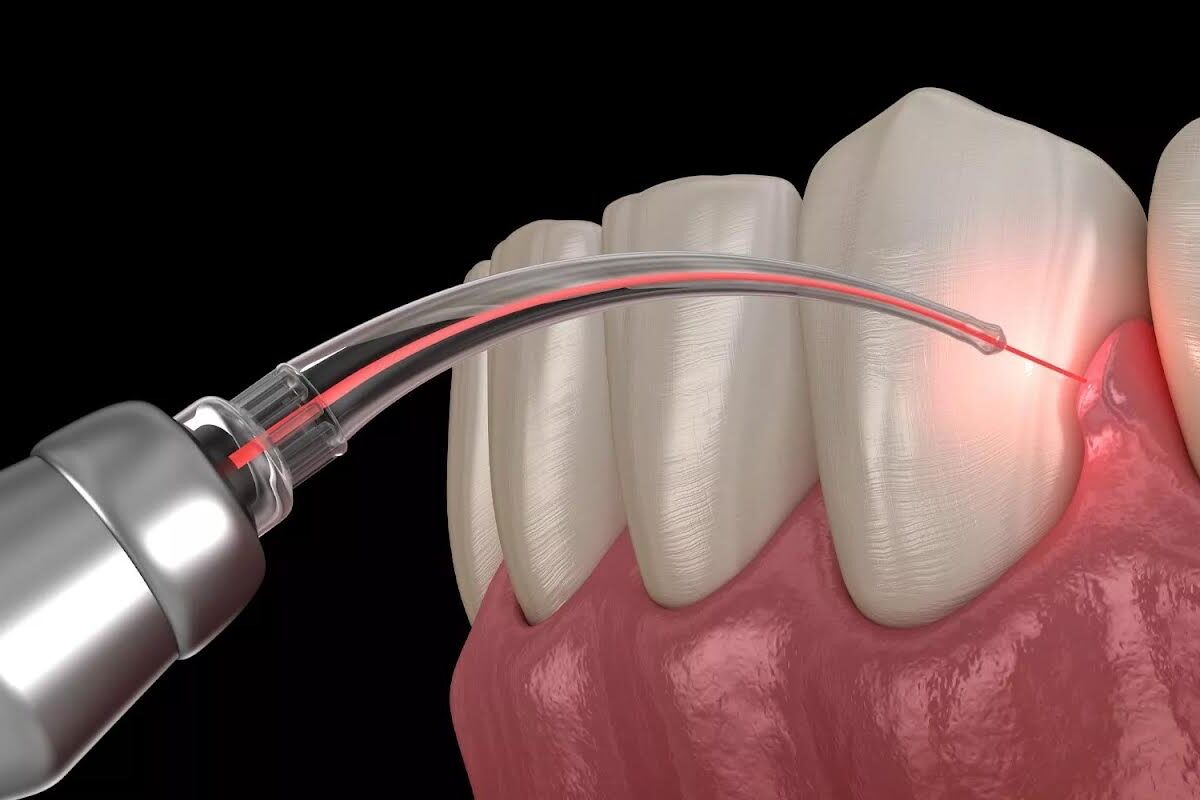Lasers work by delivering energy in the form of light. When used for surgical and dental procedures, the laser acts as a cutting instrument or a vaporizer of tissue that it comes in contact with. When used in teeth-whitening procedures, the laser acts as a heat source and enhances the effect of tooth-bleaching agents. Dental diode lasers, sometimes called soft-tissue lasers, are ideal for procedures that involve cutting or contouring oral soft tissues. As a clinical tool, diode lasers offer a wide range of clinical treatment possibilities as they are capable of creating precision cuts in gingiva and other soft tissues while also eliminating bleeding at the site and reducing the healing time for the patient. Soft tissue lasers are ideal for troughing around preparations, sterilizing endodontic canals, treating periodontal disease, and even tooth whitening.
Diode laser procedures in Dentistry.
- For optimal master crown and bridge impressions, the diode laser allows the user to trough the soft tissue to create a more accessible preparation margin and, at the same time, to control moisture contamination and bleeding without the use of chemicals and packing cord(s) or the fear of tissue recession
- Frenectomies can be performed using the diode laser to stop the migration of gingival tissue, and hyperplastic tissue is easily trimmed without the need for a scalpel and sutures.
- Dental implant uncovering procedures
- Lesion destruction
- Periodontal maintenance procedures
Laser therapy provides the following advantages:
- Treatment will not harm dental hard tissue
- Laser therapy shouldn’t injure the dental pulp
- The patient will need minimal local anesthetic, and most patients prefer to receive some form of anesthesia
- Diode lasers are safe for use around dental implants
- They are also safe around PFM and full-metal crowns, and gold alloy and amalgam restorations
- Dental lasers provide excellent hemostasis
- Soft tissue removal is very precise and predictable, and the pen-style holder provides good visibility
- Stitches and periodontal packs may not be required, which can be especially advantageous for pediatric or special needs patients


